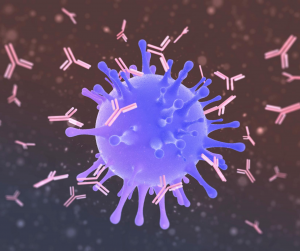Multi-Omic Approaches to Solve Post-Acute COVID-19 (MOSAIC)

The purpose of this study is to facilitate early detection of ME/CFS in people with Long COVID and better understand disease progression.
Single Day Longitudinal Study

This study seeks to understand the biological mechanisms driving the symptomatology of Myalgic Encephalomyelitis/Chronic Fatigue Syndrome (ME/CFS) using metabolomic and lipidomic high-throughput analysis and high-frequency blood sampling over a 6.5 to 7.5 hour period conducted at two separate sites (Melbourne and Uppsala)
Critical Illness, Mechanisms of Recovery, Similarities to ME/CFS

We propose an initial explanation for how ME/CFS could originate and perpetuate by drawing on findings from critical illness and heat stroke research.
Studying CSF to further reveal pathogenesis mechanisms in ME/CFS

The goal of this research is to reveal more information about the role of immunology and neuroinflammation in ME/CFS, and the underlying mechanisms of related pathogenesis that takes place.
Long COVID Clinic Studies

The clinic in Uppsala continues the work of the OMF-Funded MultiCenter Collaborative Study on COVID to ME/CFS progression.
Home Visit Study
This study provides a unique opportunity to bring the lab directly into patient homes and provide immediate analysis of samples over an extended period of time.
This longitudinal approach without the invasive and/or PEM-induced measures will be vitally important in other patient cohorts and will decrease the study impact on patients from using more invasive and impactful measures (use of 1 peripheral vein catheter for all blood samples, limits the impact on patients).
Deep Proteome and Metabolome Profiling
Decode the molecular mechanisms underlying ME/CFS and contributing to specific symptoms with a particular emphasis of post-exertional malaise (PEM). This includes deep phenotyping of ME patients and global proteomic/metabolomics plasma profiling of ME..
Mechanisms That Prevent Recovery in Prolonged ICU Patients Also Underlie ME/CFS by Jonas Bergquist, MD, PhD, Uppsala Collaboration
The publication describes the overlaps between prolonged critical illness and ME/CFS. The hypothesis is that mechanisms that prevent recovery in some intensive care unit patients may also underlie people with ME/CFS.
Deep Assessment of Neuroinflammation Using CNS Imaging and Analysis of CSF, Blood, Saliva Samples
This study is designed to explore the hypothesis that deranged flow of the cerebrospinal fluid (CSF) due to craniocervical obstructions and/or instability may cause deranged intracranial pressure (ICP), neuroinflammation and cardinal symptoms of ME/CFS.
Autoimmunity and Autoantibodies

The aim is to investigate potential differences in adrenergic and muscarinic receptor autoantibody levels in plasma and cerebrospinal fluid samples between ME/CFS patients and healthy controls.